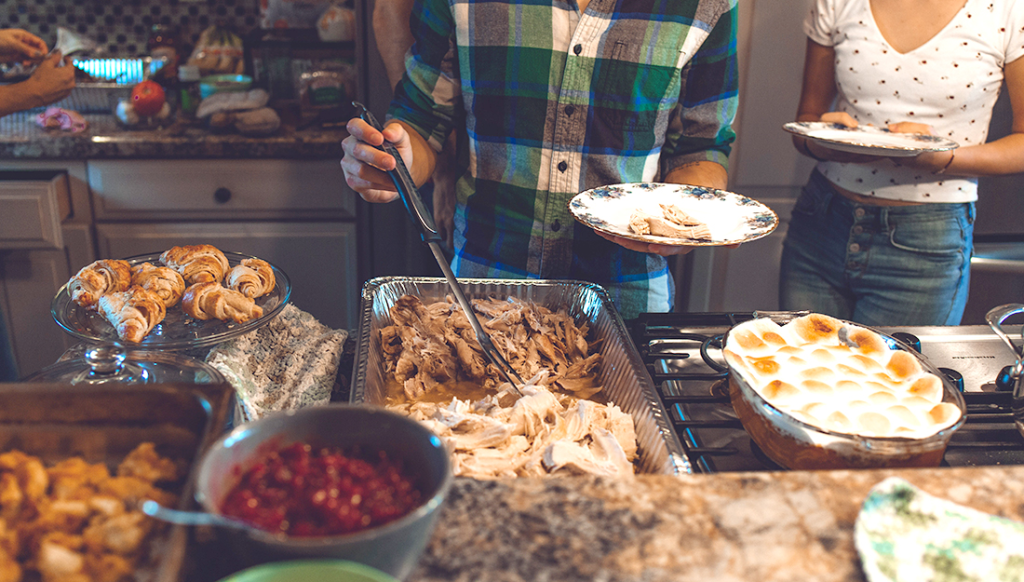Making holiday gatherings safer amid COVID-19
Texas A&M AgriLife experts say awareness, preparedness, precautions reduce risk
While the COVID-19 pandemic has kept many people at home, the fall and winter holidays traditionally are a time for friends and family to gather, and that isn’t expected to change in 2020.
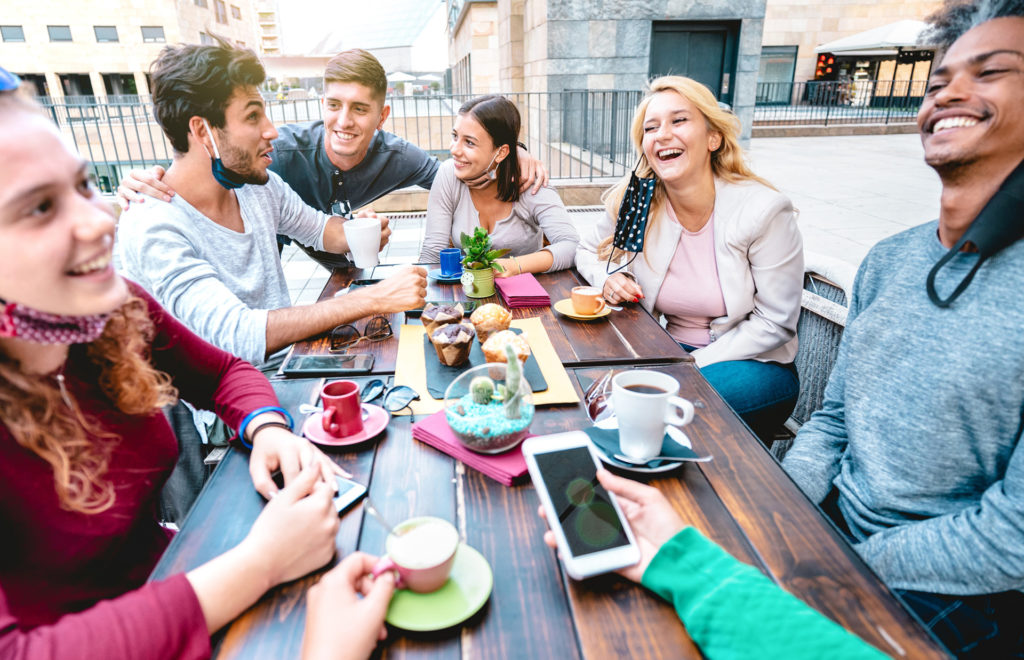
But Texas A&M AgriLife experts say it is important to understand the COVID-19 situation before, during and after an anticipated holiday gathering to determine under what conditions the celebration should continue — or whether it should be postponed or canceled.
The experts also noted those attending holiday celebrations should be aware of any health and safety laws and local or state regulations or guidelines that might affect how the holiday gathering would be held.
Family a ‘desired destination’ during pandemic
“One of the travel trends our research on travel and COVID-19 show is that during the pandemic people have shown an increased desire to be among family, and the holidays provide an opportunity for family gatherings,” said Angela Durko, travel expert and associate professor in the Recreation, Park and Tourism Sciences Department of Texas A&M University’s College of Agriculture and Life Sciences.
“However, people should consider the factors and actions that could lead to COVID-19 infection and weigh those risks individually and communally before they decide to go forward with any holiday travel to these gatherings,” Durko said.
She said while traveling increases the chance of getting and spreading COVID-19, and staying home is the best way to protect yourself and others, health experts have determined short trips by car with members of your immediate household and minimal stops along the way is a lower-risk means of travel. Those travel options with higher risks include mass transit and flights, especially with one or more stops.
“If you do decide to travel, you should wear a mask, maintain a social distance of at least 6 feet, avoid contact with anyone who appears to be ill, and avoid touching your eyes, nose or mouth,” Durko said. “You should also take and use hand sanitizer and, if there are facilities, take advantage of every opportunity to wash your hands.”
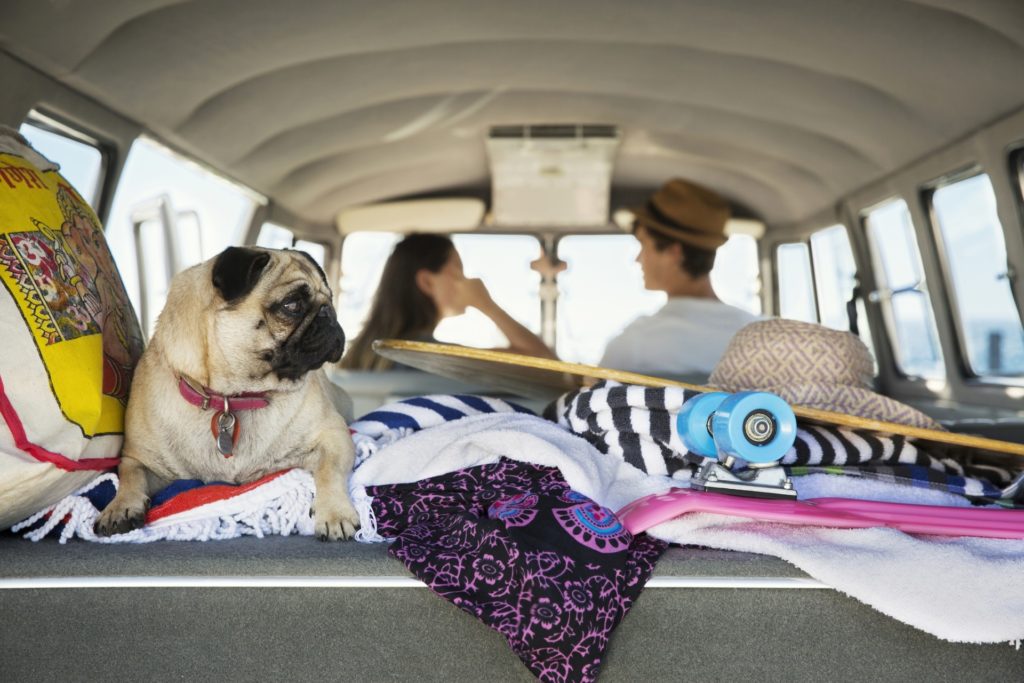
She said if booking a hotel or shared holiday vacation home, check the property’s COVID-19 regulations and operating guidelines.
“Properties throughout the U.S. are operating under different guidelines, so knowing your responsibilities and what the business is doing to protect you are important to reduce the chance of unwanted surprises along your travels,” she said. “Also check the recent user reviews to see if there’s praise or criticism about properties adhering to cleaning policies and mandated guidelines or not.”
Considerations and options if gathering
Miquela Smith, Texas A&M AgriLife Extension Service health specialist for the Disaster Assessment and Recovery Unit, Lubbock, said along with taking precautionary measures against COVID-19, people should get the flu vaccine to better protect them through flu season.
Smith said both those planning to host and attend holiday gatherings should consider the risk of viral spread based on the expected size of the gathering and what strategies can be used to reduce that risk.
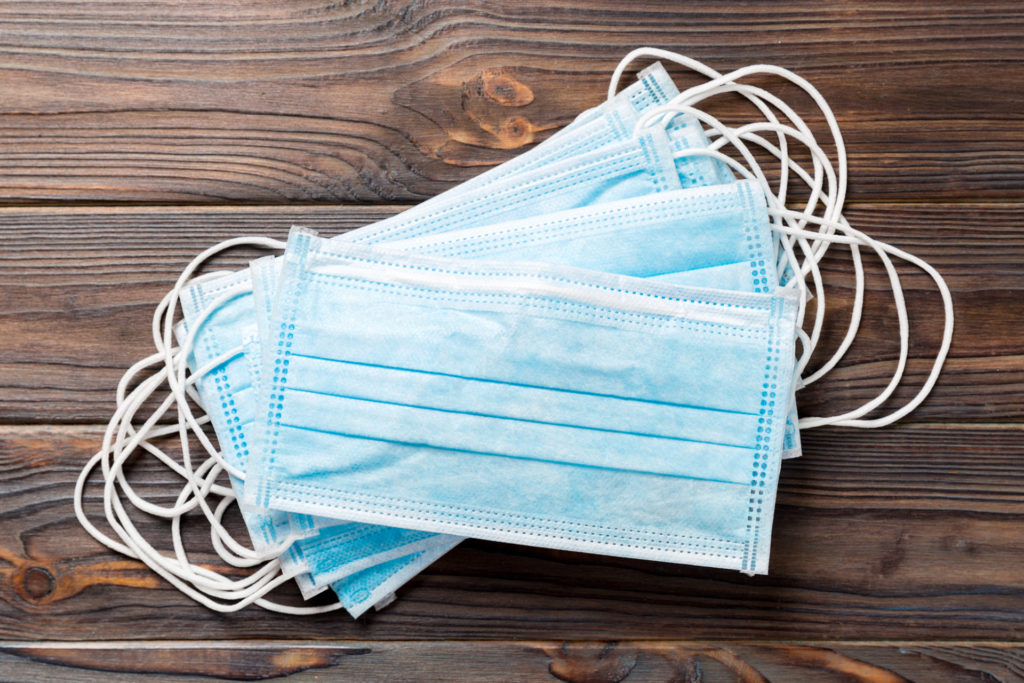
“Family and friends should consider the daily new case and hospitalization rates of COVID-19 in their community and in the community where they plan to celebrate,” she said.
Additional considerations for gatherings should include what kind of gathering it will be, how long the gathering is expected to last and the location from which attendees will be traveling.
Some suggestions from the Centers for Disease Control and Prevention for safer holiday gatherings during the pandemic include:
- Hosting outdoor activities rather than indoor activities as much as possible. If hosting an outdoor event is not possible, avoid poorly ventilated or enclosed indoor spaces and open windows and doors to the extent that is safe and feasible based on the weather.
- Inviting people from the local area as much as possible, as attendees coming from outside the area pose a greater risk.
- Limiting the number of attendees to help with social distancing.
- Helping guests understand any COVID-19 safety guidelines and steps in place to prevent the spread of the virus.
- Providing or encouraging attendees to bring extra masks, sanitizer or other items for their safety.
Smith noted the longer a person attends a gathering, the more their risk for COVID-19 increases.
“So, this holiday season would not be the best for lingering to chat, having a few extra drinks or watching a football game,” she said.
Attendee ‘etiquette’ in the time of COVID-19
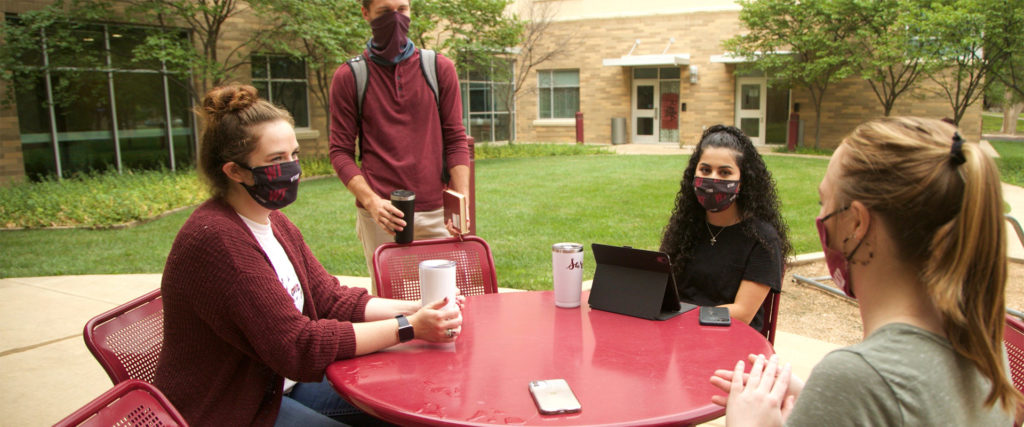
Smith said those who should not host or attend a gathering in person include the elderly, especially those with an underlying health condition, anyone diagnosed with COVID-19 who could still infect others, anyone tested and still awaiting results, and those who may have been exposed to COVID-19 two weeks prior to the event. However, for those who feel secure attending a gathering, she said some things to keep in mind include:
- Maintaining your distance from people outside your own household and being cautious about congregating in small or enclosed areas.
- Avoiding close-contact gestures such as hugging, shaking hands or even bumping elbows. Wave and verbally greet others instead.
- Wearing a mask at all times when around people who don’t live in your household as a means of reducing the risk of spreading the virus.
- Avoiding loud talking, singing or shouting, especially if not wearing a mask and within 6 feet of others.
- Following social distancing protocols in the two weeks leading up to your family gathering.
Smith said gatherings with attendees who do not practice social distancing, mask wearing, hand-washing and other prevention behaviors pose more risk than gatherings in which attendees follow those behaviors.
Handling food at a gathering
Rebecca Dittmar, AgriLife Extension program specialist, Kerrville, said while there is no evidence handling or eating food is associated with the direct spread of COVID-19, people should still be cautious of touching surfaces that may have the virus and then touching their mouth, nose or eyes.
To be safer with regards to food handling at a gathering, Dittmar recommends:
- Making sure guests have access to facilities for washing their hands or provide hand sanitizer that contains at least 60% alcohol.
- Cleaning and disinfecting any surfaces where food will be served or placed.
- Encouraging guests to bring food and drinks for themselves and for members of their own household instead of having a potluck offering.
- Limiting the number of people going in and out of the areas where food is being prepared or handled.
- Wearing a mask or face shield while preparing or serving food to others who don’t live in your household.
- If practical, having one person with a mask or face shield and gloves serve all the food so multiple people do not use the same utensils.
“Once the gathering is over, be sure to remove and wash any reusable items such as tablecloths or cloth napkins,” she said.
After a gathering
Smith said those who suspect they have been exposed to COVID-19 at a gathering should take additional precautions for two weeks after the date of the gathering in order to protect others.
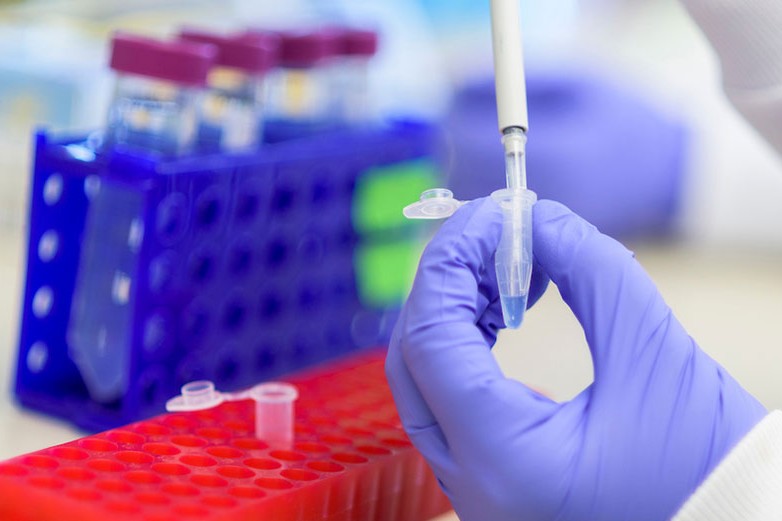
“That includes staying home as much as possible, keeping away from those who are at increased risk of getting COVID-19 and consider getting tested for COVID-19,” she said. “If you begin to show symptoms of COVID-19 — fever, cough, body aches, shortness of breath – or test positive for COVID-19, you should immediately contact your host and all other guests in attendance at the gathering to let them know they too may have been exposed. If you are unsure about what safety protocols to follow after potentially exposing others or coming into contact with someone who has the virus, visit the CDC’s website for guidance or contact your local health department.”
